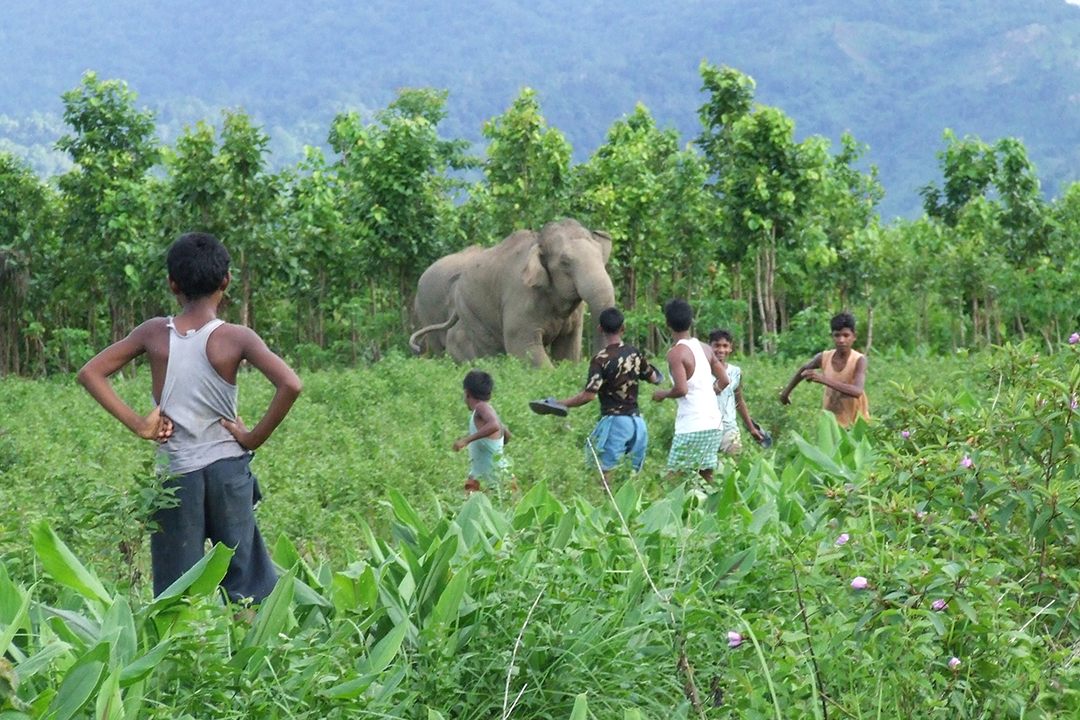The Human Wildlife Co-Existence Research Network (HWCRN) has been inaugurated in Eastern Africa, aiming to foster multi-stakeholder collaborations and drive progress in managing human-wildlife relationships across the continent.
In Africa, the persistent conflicts between humans and wildlife present escalating challenges for both wildlife conservation efforts and the livelihoods of local communities.
Despite numerous research initiatives and mitigation policies addressing these conflicts, African governments and wildlife conservation organizations continue to face hurdles in effectively managing human-wildlife interactions.
Challenges include the development and implementation of wildlife-conflict mitigation policies, often lacking comprehensive scientific knowledge and community perspectives.
Led by a team of African scholars from prestigious research universities in the United States, including Oregon State University, Pennsylvania State University, and the University of Vermont, the HWCRN seeks to bridge traditional and scientific knowledge to devise policy solutions promoting human-wildlife coexistence in Eastern Africa.
The research network collaborates with universities in East Africa, such as Makerere University in Uganda, Moi University in Kenya, and Sokoine University of Agriculture in Tanzania, with future partnerships planned. UK-based consultancy, Shared Planet, supports the creation and management of the Network.
The HWCRN is envisioned as a groundbreaking multi-stakeholder platform dedicated to enhancing human-wildlife relationships in the region, starting with East Africa and expanding to other parts of the continent post-2025.
It brings together diverse stakeholders to facilitate collaboration, learning, and innovative solutions addressing human-wildlife coexistence in Uganda, Tanzania, Rwanda, and Kenya.
Emphasizing the empowerment of local communities in policy development and implementation, the HWCRN aims to foster science-based decision-making that balances wildlife conservation with the needs and aspirations of East African communities.
Dr. Edwin Sabuhoro, Assistant Professor at the Pennsylvania State University and co-founder of the HWCRN, emphasized the necessity of a new model tailored to the environmental factors of Africa.
Dr. Sabuhoro said that, “By creating an African-specific approach, we can address this complex issue in a comprehensive and inclusive manner, involving all stakeholders in human-wildlife co-existence.”
Through its online knowledge platform, the HWCRN provides access to existing knowledge and new insights on human-wildlife interaction challenges and solutions, promoting awareness of best practices.
The platform features peer-reviewed scientific publications, policy documents, reports, and other valuable resources for stakeholders involved in the human-wildlife ecosystem in Eastern Africa. Organizations and individuals, including academia, government, non-profits, community-based groups, and the private sector, are encouraged to join the Network.
Dr. Ida Djenontin, Assistant Professor at the Pennsylvania State University and co-founder of the HWCRN, highlighted the network’s inclusivity and commitment to transdisciplinary approaches, stating, “We want to leverage transdisciplinary approaches to co-create knowledge relevant for science-based policy on human-wildlife coexistence in the region.”
The establishment of country-level chapters within East African and broader African countries marks a significant milestone for the HWCRN. These chapters aim to foster collaborative knowledge sharing and engage key organizations, including wildlife management authorities, conservation NGOs, community leaders, and academic institutions.
The HWCRN held its inaugural workshop in Kampala, Uganda, in July 2023, establishing its first national chapter in Uganda. Expansion to Tanzania is planned for the summer of 2024, followed by Rwanda and Kenya chapters in 2025.
Dr. Ian Manunara, Associate Professor at Oregon State University and co-founder of HWCRN, emphasized the Network’s potential to promote harmonious human-wildlife coexistence in Africa.
Dr. Manunara affirmed, “By uniting wildlife practitioners, academics, and local communities, we empower frontline practitioners with science-driven policy solutions, ensuring that local perspectives informed science guide impactful policymaking, ultimately enhancing the well-being of both people and wildlife.”



















